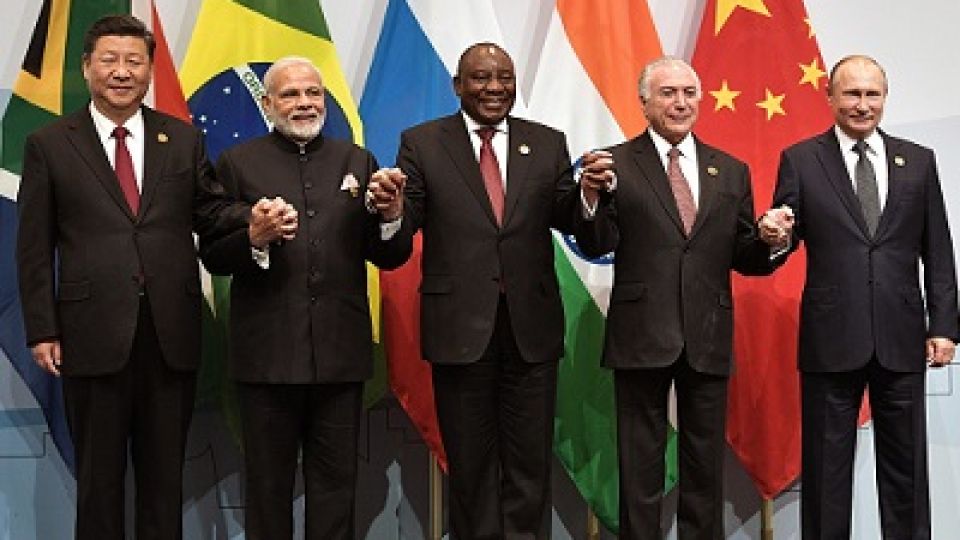by SAVIOUS KWINIKA
Group Editor-In-Chief
JOHANNESBURG, (CAJ News) – THE Brazil, Russia, India, China and South Africa (BRICS) nations have been urged to construct a multipolar system to neutralize the monopoly by the United States (US) post the Second World War.
This would also enhance prospects of the bloc exceeding the Group of Seven (G7) in terms of global economic share.
The G7, comprising Canada, France, Germany, Italy, Japan, the United Kingdom (UK) and the US, is currently dominant.
Of late, the G7 is seen as making lots of political oversights, economic blunders, human rights miscalculations, power abuse, slip-ups and dictating to developing countries, a move that triggered the formation of the BRICS.
According to data obtained from the International Monetary Fund (IMF), the BRICS regional bloc is expected to increase its global economic share to 35 percent by 2028 exceedingly surpassing the G-7’s economic share.
The IMF data further noted the BRICS countries would contribute a total of 32,1 percent of the world’s economic growth as opposed to the G7’s 29,9 percent.
Economist Tom Sansone noted if BRICS was to be successful in constructing a multipolar substitute for the post-WWII US monopoly, it needs to have a plan to assist countries in succeeding within it more than they were before under the US hegemony.
“That means identifying what each country can best contribute to maximize its economic growth and the realization of that by its citizenry not simply a select group (s) or subpopulation (s),” Sansone said.
He added: “If China is to lead, it has the responsibility – if it truly wants to supplant the existing global order. (The) BRICS, and particularly Beijing, should work on developing a model that can be applied for identifying a country’s economic differentiators and the minimal institutional process for its government to ensure equitable citizenry benefit and further growth potential.”
China’s economy is the biggest in BRICS, and second largest in the world, although independent observers suspect that China has already surpassed the United States as the world’s economic superpower.
Lameck Brock observed: “BRICS is an economic development bloc for mutual and world benefits.”
He mentioned that other blocs like AUKUS (Australia, the UK and the US), NATO (North Atlantic Treaty Organization) and G7 were akin to military blocs with a primary objective of hegemony over the world.
BRICS is widely viewed throughout the world as a grouping standing for fairness, justice and economic emancipation.
Rim Rockford commented: “Elite (G-7) Vs the masses (BRICS)….the winner is plain to see.”
He added, “Western economies hinge on wars, plunging other countries’ wealth and export of military hardware.”
Shaman Ra pointed out: “BRICS and the multipolar world will leave the West and its ponzi-economies in the dust.”
However, Monte Cristo differed, suggesting the BRICS nations would lose income and their products.
He said the BRICS would stagnate resulting in inflation higher than those countries in the G7.
“Having resources which couldn’t be traded will bring higher inflation and restlessness than having no resources at all. Having no resources, you can beg others. Having abundant resources, you can’t beg the beggars to buy,” Cristo said.
He nonetheless stated: “I agree the current geopolitical stage is not the same as US dominated hegemony before. But right now, the world is in the balance between producers and consumers. It all comes down to the alliance you make at the cost of existing/useless/paired alliances.”
The IMF report indicated that in 2020, the contribution of both the BRICS nations and the G7 to global economic growth was equal before the performance of the Western countries declined.
Of late the BRICS has been widely receiving applications from some of the 55 countries in Africa. Other countries drawn from Asia and Latin America expressed interest to join the BRICS.
Some of these countries have borne the brunt of the US, NATO and G7 undermining their sovereignty and regime changes.
– CAJ News

